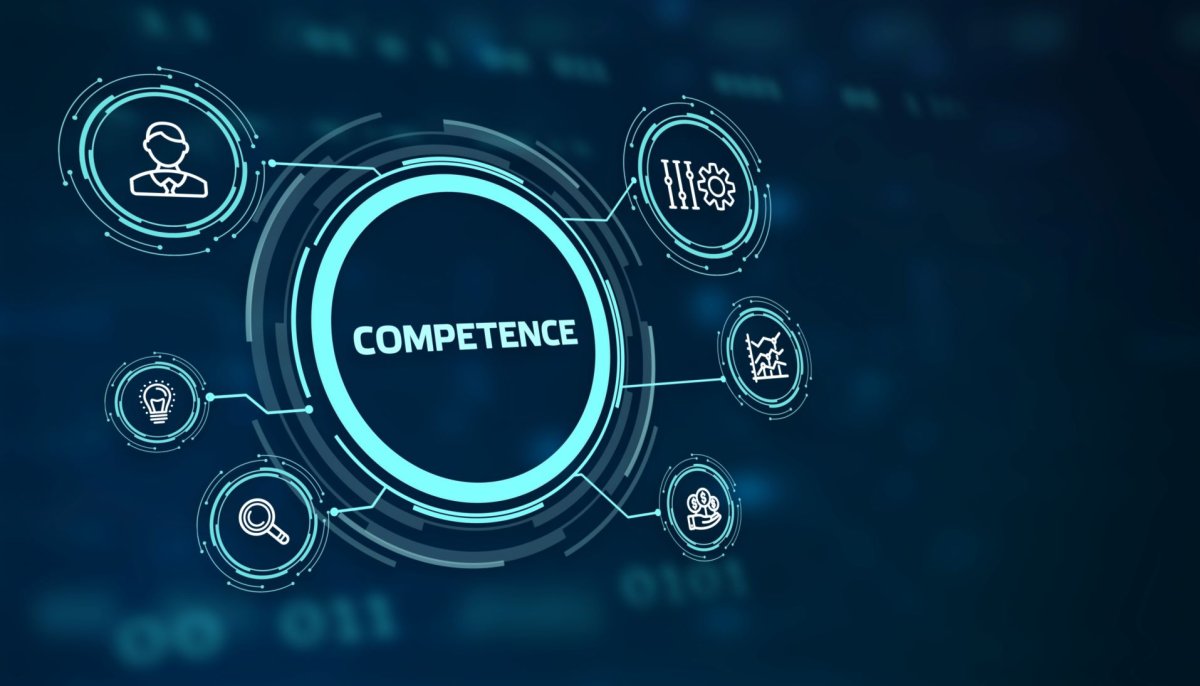In today’s fast-paced and ever-evolving business landscape, companies face the constant challenge of aligning their workforce with changing goals, emerging technologies, and shifting market demands. Amidst this dynamic environment, a well-structured competency framework is a critical tool for businesses to stay ahead. It helps align employee capabilities with organizational needs, creating a solid foundation for success. In this post, we explore why competency frameworks remain essential and how they benefit businesses today.
What is a Competency Framework?
A competency framework defines the skills, behaviours, and knowledge employees need to perform their roles effectively. It outlines not only the technical expertise required but also the soft skills and behavioural attributes necessary for success. Competency frameworks often include role-specific, technical, and leadership competencies, ensuring that every aspect of employee performance is evaluated and developed.
Why Competency Frameworks Matter Today
- Bridging the Skills Gap
As industries evolve, so do the skills required to thrive. Competency frameworks provide a clear map for organizations to assess current skills, identify gaps, and strategically develop their workforce. With roles constantly changing due to technological advancements or new business models, a structured approach helps ensure employees are equipped to handle future challenges. - Enhancing Recruitment and Selection
Finding the right talent is more than just evaluating a resume. Competency frameworks provide recruiters and hiring managers with a precise set of criteria for selecting candidates who possess not only the right technical skills but also the soft skills that align with the company culture. This leads to better hiring decisions, reduced turnover, and a workforce that fits seamlessly into the organization’s objectives. - Improving Performance Management
Competency frameworks offer a robust foundation for performance appraisals. Instead of relying on subjective evaluations, managers can assess employees based on well-defined competencies. This leads to more objective, transparent, and constructive performance reviews, fostering a culture of fairness and accountability. Employees are also clearer about expectations and how their performance will be measured, motivating them to develop the required skills. - Guiding Employee Development
One of the most significant benefits of competency frameworks is their ability to guide employee development. Employees can clearly see what competencies are needed to excel in their current role or move up to the next level. For businesses, this means more targeted and efficient training programs that are aligned with organizational goals. Investing in employee development through a competency framework can lead to greater job satisfaction, improved retention, and the creation of a future-ready workforce. - Supporting Succession Planning
Competency frameworks are invaluable for identifying and nurturing future leaders within the organization. By defining the competencies required for leadership roles, businesses can spot high-potential employees early and provide them with the necessary development opportunities. This strategic approach to succession planning ensures a pipeline of capable leaders ready to step into critical roles, minimizing disruption when key employees leave or retire. - Driving Organizational Alignment
Competency frameworks create alignment between individual roles and overall business goals. By defining the competencies that are crucial for the company’s success, organizations can ensure that every employee is working towards the same strategic objectives. This alignment fosters cohesion, reduces miscommunication, and creates a stronger sense of purpose throughout the organization.
The Strategic Benefits of Competency Frameworks
Incorporating a competency framework into your organization brings numerous strategic advantages:
- Increased Agility: As markets and industries evolve, businesses with a competency framework can more easily adapt by reskilling or upskilling employees based on new demands.
- Improved Talent Management: Competency frameworks offer a comprehensive tool for managing talent at every stage—from recruitment and onboarding to performance evaluation, development, and succession planning.
- Enhanced Employee Engagement: Clear development paths, aligned expectations, and transparent performance reviews contribute to higher employee morale and motivation. Employees are more engaged when they understand what is expected of them and how they can grow within the company.
- Better Business Outcomes: By ensuring that employees have the right competencies to meet business objectives, organizations can improve efficiency, innovation, and customer satisfaction—key drivers of competitive advantage.
Conclusion
In a world where adaptability and agility are key to business success, competency frameworks provide structure and clarity. They empower businesses to effectively manage their most valuable asset—people—by aligning skills and capabilities with strategic goals. As businesses continue to navigate uncertain times, having a competency framework in place is not just relevant; it’s essential for long-term success.
At AccelerLearn, we help organizations build and implement competency frameworks tailored to their unique needs, ensuring that their teams are equipped for the future. Reach out to us to learn how we can support your business in creating a high-performing workforce.
